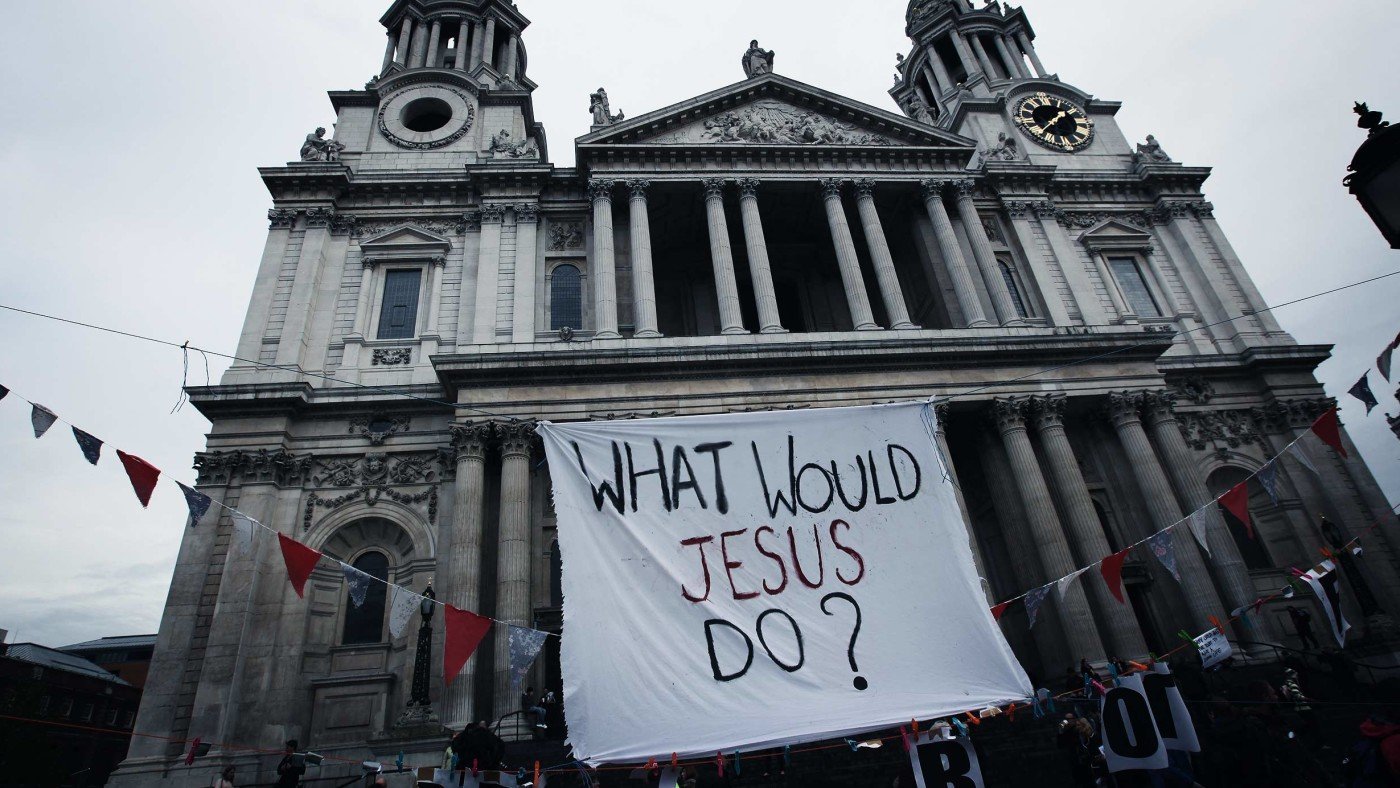Readers of CapX with either good memories or not enough to worry about will remember my brief campaign against Thought for Day, the religious affairs slot on BBC Radio 4’s Today programme. At ten to eight every morning, Monday to Saturday, a vicar, priest, rabbi, imam, humanist or multi-faith commentator is called upon to make some spiritual observations relating to the news in the form of a radio essay. Billy Connolly did the best spoof of this in perhaps his greatest ever performance – An Audience with Billy Connolly for LWT in 1985 – which involved a vicar called Nigel taking his son, Nigel Jnr, to see a football match: “Daddy, did Jesus play for Tottenham Hotspur? And, you know, in a funny way… he did.”
But in recent years, particularly since the financial crisis, Thought for the Day has gone beyond being a joke. For those of us who think that commerce, markets and free trade are not entirely evil – indeed they are the engines of prosperity, growth and improvement – Thought for the Day sounds as though it might as well be produced by a committee run by Arthur Scargill, Stalin, Fidel Castro, Hugo Chavez, Jeremy Corbyn and the Reverend Giles Fraser. When its contributors touch on economics, they seem invariably to approach the subject from a left-wing point of view.
Now, in a new book on the BBC, the Institute for Economic Affairs reveals the truth about Thought for the Day, with statistics and everything.
“In a sample of 976 separate editions of Radio 4’s Thought for the Day, 167 included discussions on economics, business and finance. Two thirds (65%) expressed a negative opinion on capitalism, markets and business, whilst just 8% gave any sort of positive perspective. Negative commentary outweighed positive commentary by a factor of more than eight to one.”
One of the authors, Ryan Bourne, a CapX contributor, wrote the chapter on allegations of wider BBC bias, and while I’m not sure I endorse every conclusion (speaking as someone who is invited on to the BBC regularly and likes quite a lot of the people there) it is a superbly well-researched analysis. On Thought for the Day, the findings are damning. With Ryan’s permission, here are some highlights:
The vulnerabilities of the poor were highlighted as if capitalism caused poverty, but the role of capitalism in alleviating poverty was barely mentioned.
Cuts to government spending in areas such as welfare and health were focused on regularly, but without corresponding attention being given to problems such as dependency or the strains placed on provision due to an ageing population.
Economic growth – the driver of improved living standards – was opposed and downplayed, whilst several contributors attacked the straw man idea that politicians seek to maximise GDP.
Free-market ideology was attacked – with crude denouncements of “neoliberalism”, Ayn Rand and the idea of ‘trickle down’ economics – even though there is no real evidence of any prominent free-market economist ever advocating the latter.
The issue of tax avoidance was discussed in moral terms, implying it was inherently moral for corporations to pay more tax than was legally due. No contributor suggested politicians had the power to change tax law.
In several instances, capitalist activities were said to lead to “exploitation”. The existence of sweat shops was lamented, without ever discussing the likely negative impact the non-existence of these industries would have in developing countries.
The financial crash and illegal activities of banks and financial entities were regularly discussed, but nothing was said about the role of government policies, including regulatory and monetary failure, in contributing to these outcomes.
Markets and business were said to be eroding moral values. Investors in art (from the “jet set and hedge funds”), for example, were concerned only in the value of the paintings and had no sense of aesthetics. Anti-consumerism and a dislike of advertising pervaded several contributions.
New technologies such as Bitcoin and smartphones were denounced, with rare exposition of the benefits of these new technologies to people’s lives.
Inequality was regularly held up as being self-evidently a huge problem, with highly contentious figures from oxfam and others cited. At no point was it pointed out that global inequality was falling.
As Ryan Bourne concludes: “While one might expect religious leaders to focus on certain topics – such as the conditions of the poor, inequality, business morality and the common good – this need not necessitate such stringent anti-market views as seen from the large sample examined. There is a clear bias in selection here against opinions that hold business, capitalism and economic activity not centrally planned by governments in a positive light. Thought for the Day, in its discussion of economic issues at least, overwhelmingly represents a world-view that, at best, is sceptical of capitalism and voluntary market-based exchange, and, at worst, disdains it.”


